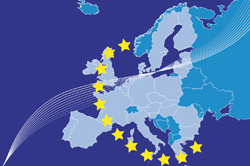Central America: Agreement with EU could help
Tuesday, July 3, 2012

The signing of an association accord between Central America and the European Union last week in Tegucigalpa could be an important step toward greater economic integration in the region.
The new treaty is unique: each party to it is a regional bloc. Other accords, such as Cafta and Nafta, are between a nation on one hand, and a region on the other.
The agreement comes at a time when the concept of regional integration is under threat in Latin America. Argentina and Brazil have cashed in for years on high prices for commodities. Now that the commodities boom is fading, South America's Big Two have forgotten some of the principles of free trade, and instead are once again protecting their manufacturing industries.
So Central America deserves applause.
For its part, the accord will be successful, if it lives up to the expectations of the European Trade Commissioner, including greater efficiency for both sides.
"At the same time, this deal should have a positive spill-over effect on Central America's overall economic integration process, and contribute to the stability of the region," said Karel de Gucht.
Central America is still a long way from full integration. In the absence of an effective customs union, trade is slowed by red tape. Border conflicts don't help. The much-heralded regional electricity network has yet to be completed.
In addition, many major projects are limited to local interests. If a proposed $1 billion container port in Limón, Costa Rica, were managed as a Central American project, Nicaragua would have no need to plan for a new facility at Monkey Point.
Ports that cater only to a small national market risk being costly white elephants. Just ask El Salvador about La Unión.
Meanwhile, each of the six Central American countries still has to ratify the accord.
